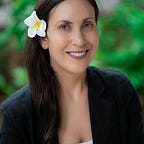What is the difference between a dietitian and a nutritionist?
If you’ve searched for advice on nutrition, you might have come across lots of different “professionals” ready to help. If you had trouble distinguishing the difference between dietitian and nutritionist, you are not alone! I’m here to shed some light on this topic.
What is a dietitian?
Let’s start with the term “dietitian.” Did you know that the terms “registered dietitian” (RD) and “registered dietitian nutritionist” (RDN) have the same meaning when it comes to educational requirements? These professionals have the choice of these two ways of stating their credentials. The Academy of Nutrition and Dietetics provides a useful list of the requirements to become a registered dietitian:
- Get a four-year degree which includes a specially designed, accredited nutrition curriculum.
- Complete an extensive supervised program of practice at a health care facility, foodservice organization or community agency.
- Pass a rigorous registration exam.
- Maintain continuing education credits throughout their career.
Registered dietitians provide science-based advice the public can trust. The public can consider registered dietitians the nutrition experts to turn to as the first source of information on nutrition. In addition to these requirements, newly credentialed registered dietitians will soon also be required to obtain a master’s degree.
To give you an example of how this works in practice, I’ll explain my own journey to becoming a registered dietitian. I completed all the coursework needed at the undergraduate level while completing my doctoral degree at UC Davis. I then applied for dietetic internships and was accepted to my first choice, New York Presbyterian Hospital. I spent a year in the internship receiving practical training in the clinical, foodservice and community areas. I then studied for the registration exam and passed. Since then, I have routinely obtained continuing education credits through conferences, webinars, reading journal articles and publishing my own articles. As a registered dietitian, I am well-versed in the science of nutrition and equipped to counsel on diets for various disease states and health-related goals. You’ll notice that I reference scientific studies in the information I provide to the public on my blog, such as in this post on sourdough bread.
What is a nutritionist?
The term “nutritionist” is broader than the term “dietitian” and signifies a broad concept of wellness. The Academy of Nutrition and Dietetics, the public’s source for science-based food and nutrition information, incorporates this term in its name. A useful way to think about the difference between the two is that all registered dietitians can be considered nutritionists, but not all nutritions can be considered registered dietitians. The term “nutritionist” has no strict definition on its own. This is important to know because anyone may call themselves a nutritionist without any formal training in the subject.
Let’s consider a couple of examples of people who might use the term “nutritionist.” A quick search of how one can become a nutritionist returns some results that advertise short programs of 24 weeks that provide the training to become a “holistic nutritionist.” Some of the program websites provide little detail on the homepage about the content, and it’s necessary to provide your email for more information. Without knowing anything further about such a program, we can first note the difference in length of study, with the registered dietitian completing a four-year degree, an internship of generally one year, an exam, and, starting in the coming years, a master’s degree. Those who complete such short programs to become a “holistic nutritionist” may not have in-depth education grounded in science and may potentially cause harm. Another example of a “nutritionist” might be some of those super-fit influencers on social media. With glowing skin, shiny hair and flat abs, they might give tons of popular and potentially incorrect information about diet based on their own personal experience. As we know, the advice we take on nutrition should not be based on anecdotal evidence, but instead on sound research in the field.
We should note that some states have laws that may require licensure of the registered dietitian at the state level, which is relevant to the use of the term “nutritionist.” That means that in addition to the registered dietitian credential, the dietitian will also have another title at the state level. Examples might be “certified dietitian nutritionist” (CDN) or “licensed dietitian nutritionist” (LDN). These are cases in which the term “nutritionist” has a clear meaning as part of these titles.
Why is it important to seek nutritional advice from a registered dietitian?
As we can see from the differences between these terms, the registered dietitian has received the required training to provide science-based nutrition advice, whereas the nutritionist may not have completed any training at all, given that this term does not legally bind a person to any specific certifications or credentials. To be sure we won’t be advised to follow current fads or provided advice based on anecdotal evidence, the registered dietitian is our go-to source for nutrition advice! If you do choose to work with a nutritionist, be sure you understand just what their training has been — as this is broadly defined, it’s certainly going to require some investigation on your part.
Have questions? Comments? I would love to hear what you think below!
